Ambassador Dessima Williams
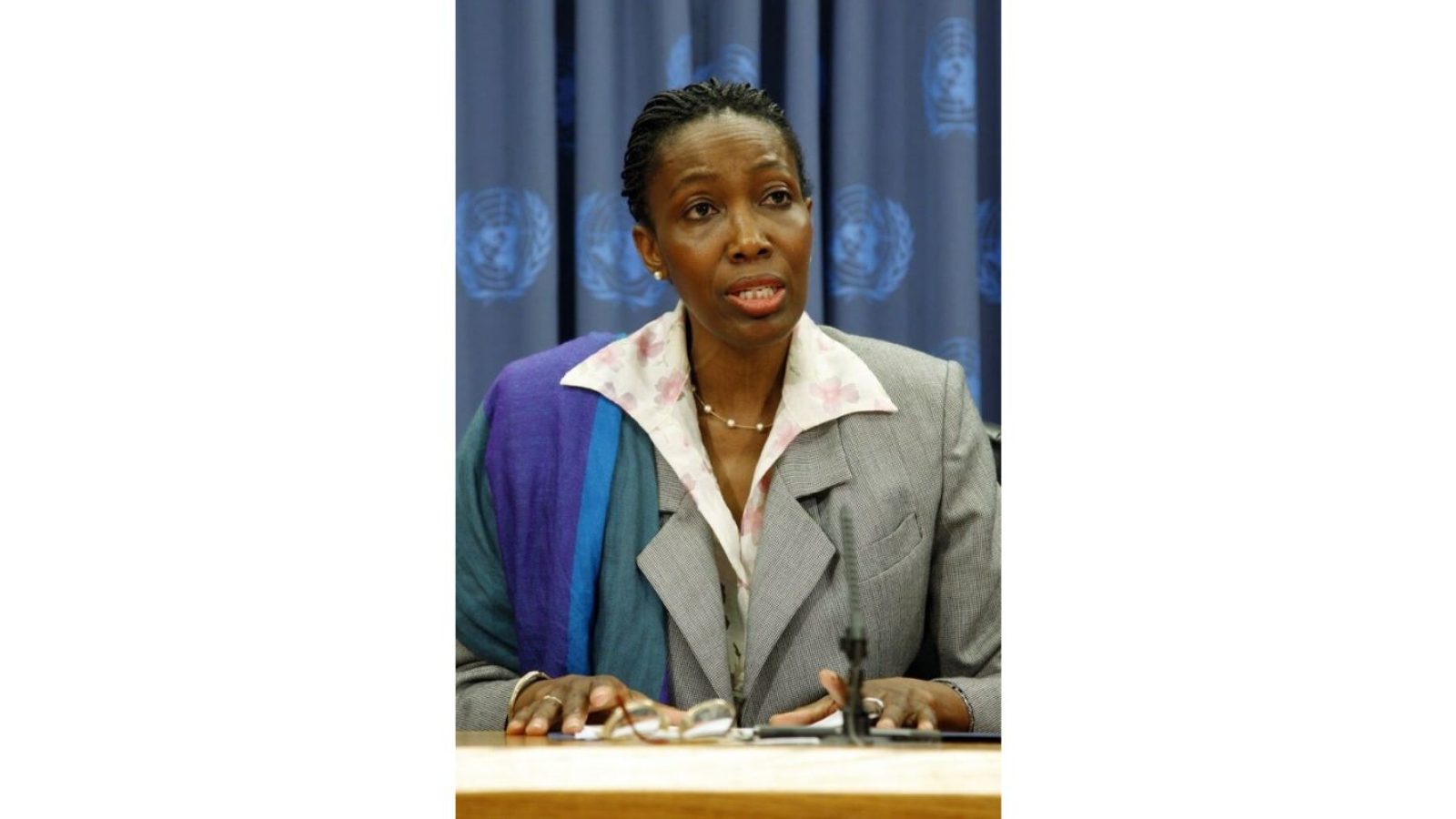
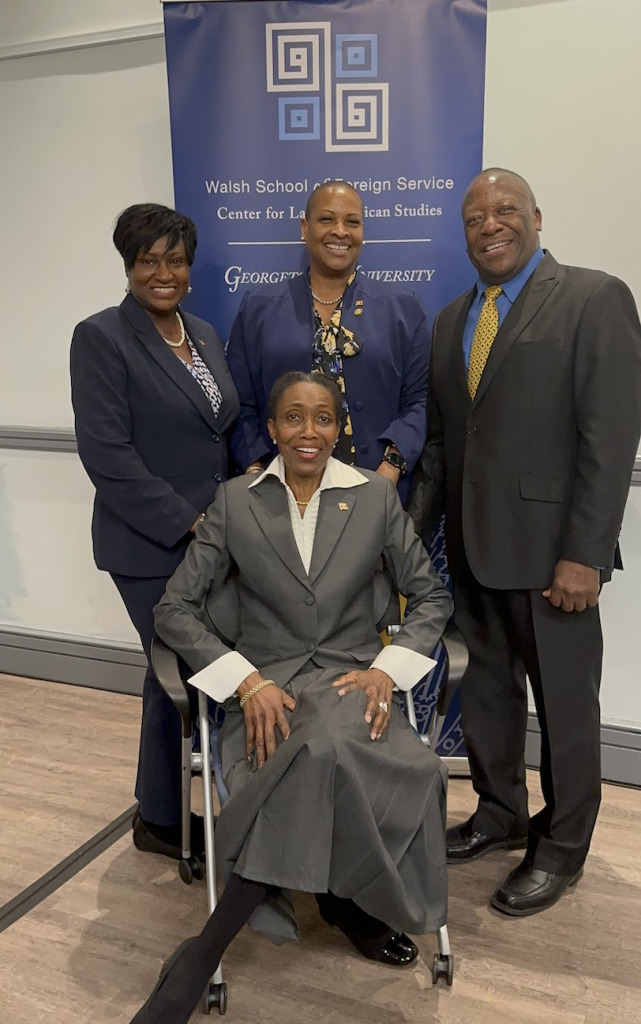
Ambassador Williams Leads Forty Years After the US Invasion of Grenada: Lessons for the 21st Century
On Thursday, March 30th, CLAS hosted The Honorable Dessima Williams, retired Ambassador Denis Antoine and Dr. Wendy Grenade of St. George’s University for the event Forty Years After the US Invasion of Grenada: Lessons for the 21st Century. After an introduction from Dean Hellman, Vice Dean Giordano, and Interim Director of The Center for Latin American Studies, Dr. Angelo Rivero Santos, the panelists spoke of Grenada starting from the Revolution in 1979 to 1983 at the time of the invasion up until today. The conversation centered around themes including the lasting effects of the US invasion, the continued importance of Small Island Developing States (SIDS), more inclusive approaches to international relations, and intergenerational learning and memory. The audience also had the opportunity to interact with the panelists and ask questions including the role of Grenadian diaspora communities, the state of Caribbean regionalism, and the responsibility students hold in learning and engaging about these topics in and outside of the classroom.
CLAS thanks our panelists, members of the CARICOM community who attended as well as the audience for their presence and participation at this important event. CLAS also thanks CNDLS and the Red House for their support in hosting the event.
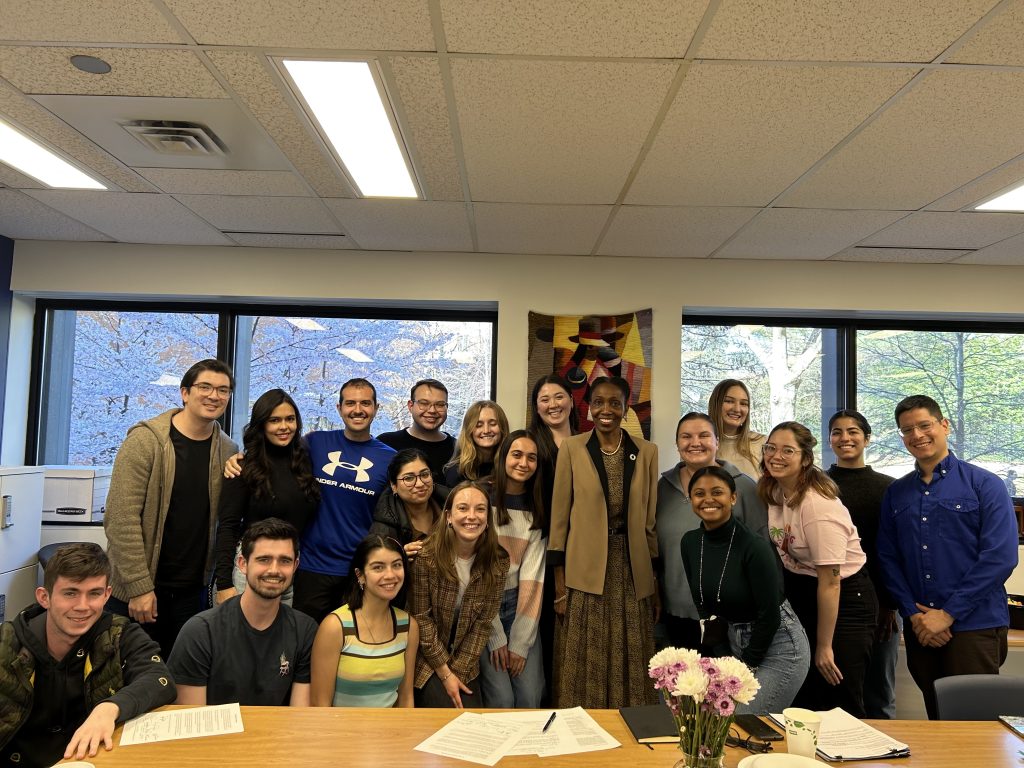
LAFAA Hosts Conversation with Ambassador Williams
On Wednesday, March 22nd, LAFAA hosted a conversation with The Honorable Ambassador Dessima Williams to discuss with students her career in diplomacy. Students who attended were able to ask Ambassador Williams questions regarding polarization and multilateralism, representation of developing countries in multinational bodies and lessons learned throughout her career. Ambassador Williams emphasized the role social justice has played in her career and the importance of building trust and fostering relationships in diplomacy. The event was an incredible opportunity for Georgetown students to directly engage with the first Visiting Distinguished Professor of Global Perspectives.
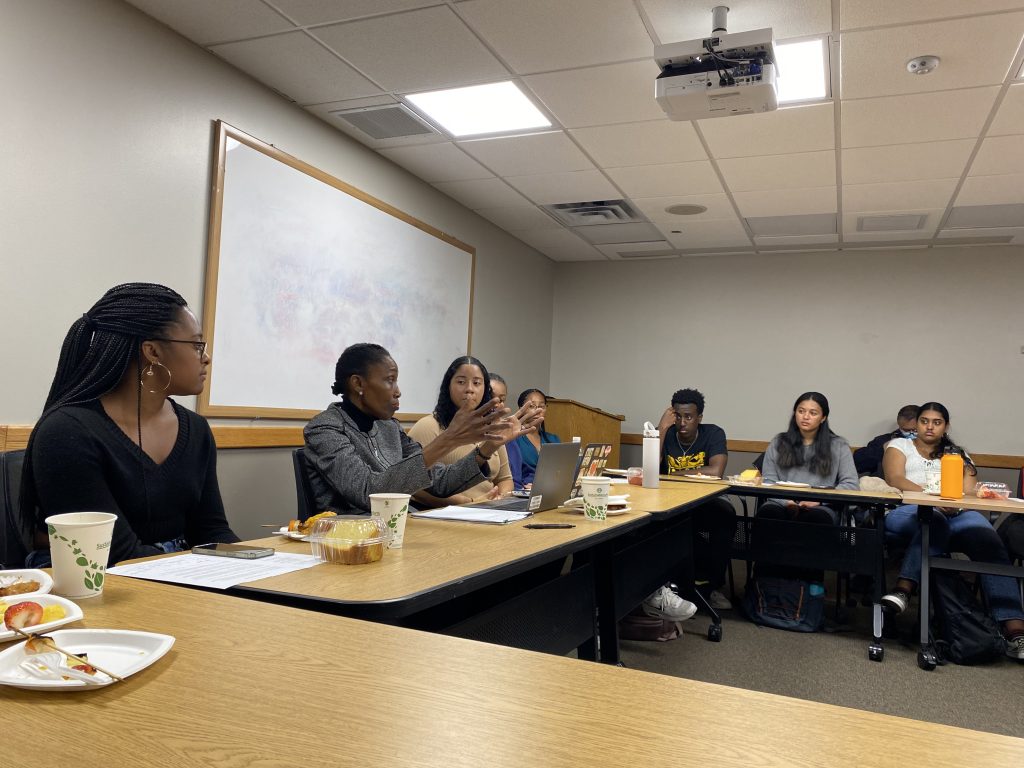
CCC and CLAS Host Conversation with Ambassador Williams
On March 21st, the Caribbean Culture Circle and the Center for Latin American Studies hosted The Honorable Dessima Williams in conversation about her experience advocating for the Caribbean on the international stage. Members of Georgetown’s undergraduate community were able to ask Ambassador Williams questions surrounding the political and economic futures of the region as well as learn how to ensure Carribbean voices are represented in global forums. Overall the discussion was engaging and inspiring. The event was a fantastic way for the Carribean student community to hear from the first Visiting Distinguished Professor of Global Perspectives
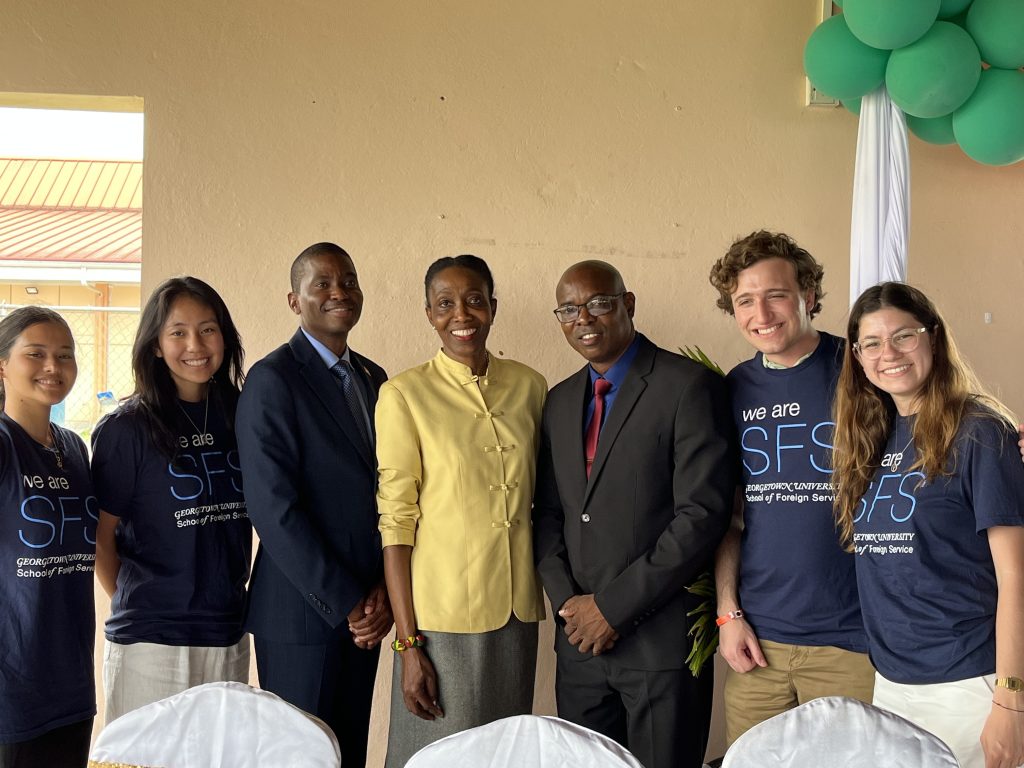
Ambassador Williams Leads Student Grenada Trip
On March 8, Georgetown students attended a Vocational and Environmental exposition hosted by Grenada’s Ministry of Social and Community Development, Housing and Gender Affairs in observation of International Women’s Day. During the visit GU students met with Prime Minister Dickon Mitchell, and the Honorable Philip A. Telesford Minister of Social and Community Development, Housing and Gender Affairs (pictured above).
The trip to Grenada during Spring Break is an integral part of INAF 324: Nobody’s Backyard: Grenada as a Case Study in Small Island Developing States and is being hosted by faculty and staff of the Department of Humanities and Social Sciences at St. George’s University. The course is taught by retired Ambassador and current President of the Grenada Senate, the Honorable Dessima Williams (center in picture above), who is being hosted by CLAS as the first SFS Visiting Distinguished Professor of Global Perspectives. The course uses the opportunity of the upcoming 50th anniversary of Grenada’s independence, the 45th anniversary of the Grenada Revolution and the 40th anniversary of the U.S. invasion to engage with the roles, impacts and challenges of Grenada as a post-emancipation, post-colonial, small island developing state.